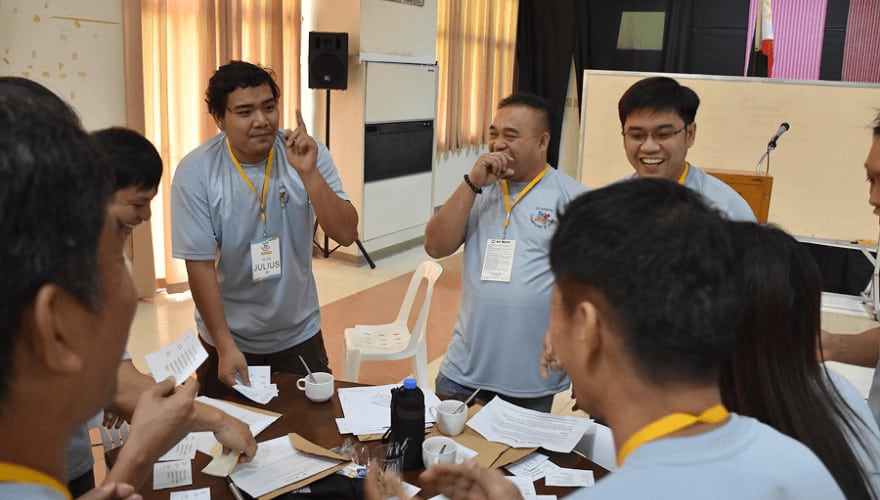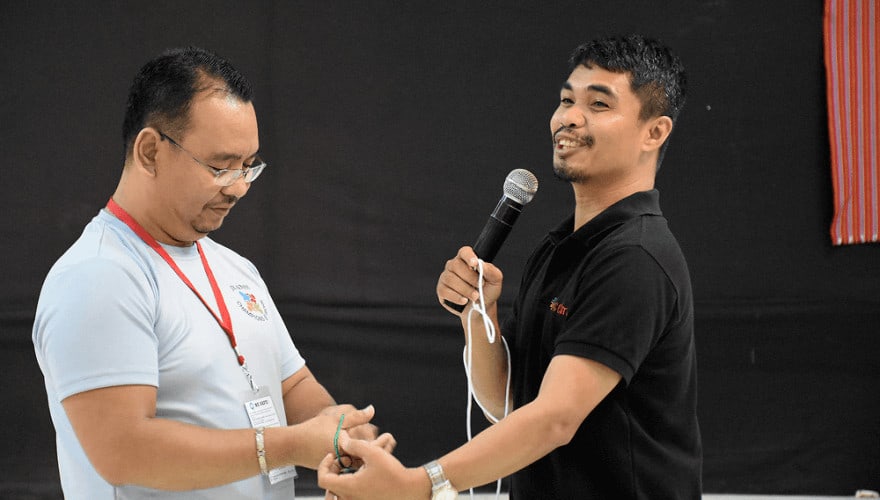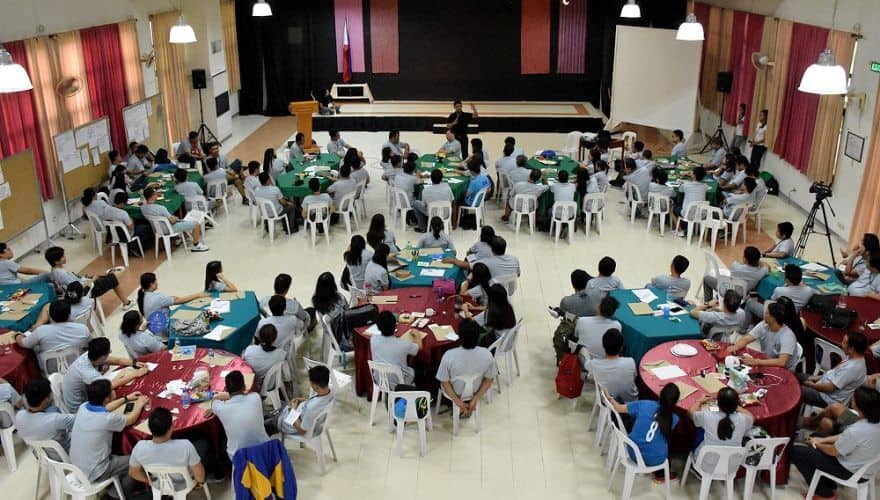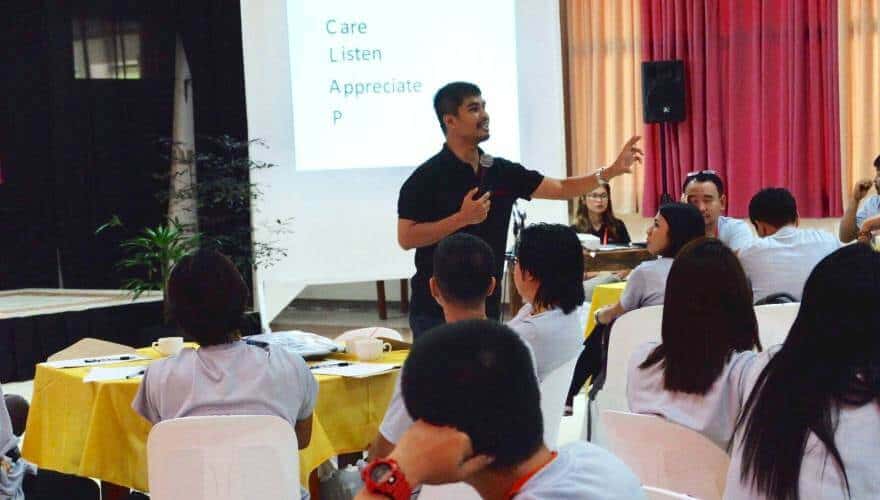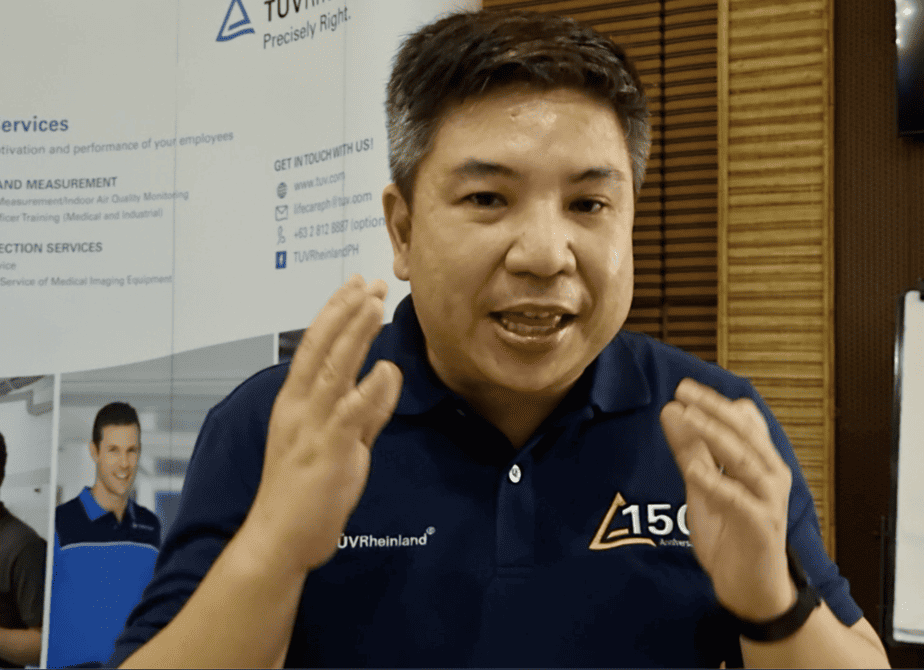Team-Building That Inspires, Connects, and Delivers with Team-Building Facilitators of Team Bayanihan
We provide tailor-fit experiences that transform mindsets, strengthen skills, and build lasting relationships—fun, immersive, relevant, and engaging, all designed to achieve your organizational goals.
Team Building That Works
You can get high-impact team building facilitation that fun, engaging, and immersive.
If you’re looking to not just fill a day but truly build your team’s strength, you’ve come to the right place.
As a business owner, I understand the unique challenges that wise managers face when fostering effective teams.
You’re aiming for more than teamwork; you want a team that excels because they truly understand and support each other. You want to transform group potential into group power.
Creating a cohesive, communicative environment where every team member feels valued and engaged is essential. However, obstacles such as budget constraints and lack of support from upper management often make it difficult to secure the resources needed for impactful team building.
The issue with many team building options out there is that they’re expensive, focusing on headcount or the number of activities rather than meaningful outcomes.
Additionally, while cheaper freelancers might offer a price break, they often resort to basic games that are fun but have fleeting effects.
Here’s the truth: lasting teamwork needs more than just fun and games. It requires consistent, targeted efforts that build skills for daily challenges. Effective team building is crucial for team development, creating lasting changes, not just providing a day off.
A truly beneficial program intertwines skill development with fun, ensuring the activities are as impactful as they are enjoyable.
It’s time for a positive change. Let’s ditch the standard, one-off events and embrace a more integrated approach.
My programs are designed to be part of your team’s routine, helping to build skills that directly translate to better team performance.
So, let’s get started! Together, we can craft a team-building experience that’s not just a day out of the office, but a meaningful investment in your team’s future. You’re not just booking an event; you’re setting the stage for continued success and team unity.
Let’s build something great together.
Wise Managers’ Choice
Wise managers work with trusted team building facilitators to create experiences that build teams and drive results.
Looking for a team-building facilitator trusted by wise managers? You are in the right place.
Create a positive experience that everyone will remember for a long time. Have fun, engage, and inspire employees to achieve team goals. Create opportunities for team members to collaborate, communicate, and commit.
Wise Managers Choose Professional Team Building Facilitators
Wise managers hire professional team building facilitators to enhance team collaboration, trust, and communication. These experts design customized activities that address specific team dynamics, ensuring productive and meaningful interactions.
Professional facilitators offer an objective perspective, identifying and resolving underlying issues that hinder performance. Their innovative techniques create engaging and inclusive experiences.
Investing in team-building facilitators boosts team morale and problem-solving skills. This results in a cohesive, motivated, and efficient team, driving overall organizational success.
The Team Building Facilitator
Jef Menguin is a trusted team-building facilitator in the Philippines. He is famous for designing fun and engaging team experiences that change behaviors, promote a growth mindset, and develop team skills.
He has also conducted team-building programs in Malaysia, Indonesia, Taiwan, and Thailand.
He is the Chief Learning Experience Designer for Team Bayanihan, the result-oriented team-building provider in the Philippines.
Corporate Clients
Since 2007, I have worked with hundreds of organizations in the Philippines and abroad.
These are government leaders, multinational companies, small businesses, local governments, government agencies, and non-government organizations.
I partner with leaders that value people development and nation-building.

